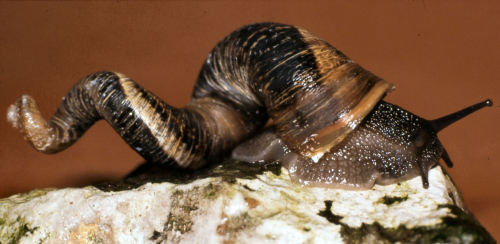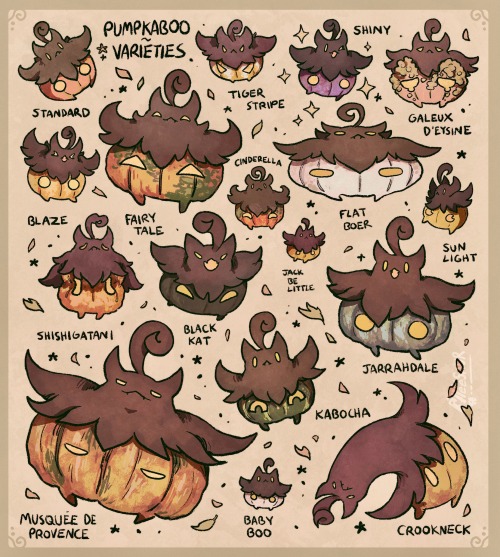I Want To Play "let's ___ With Mama" With The Shrimp I Study, But They Generally Do Not Meet Their Offspring
I want to play "let's ___ with mama" with the shrimp I study, but they generally do not meet their offspring because of how their life cycle works. The shrimp put their eggs in the mud and then the young may not hatch for years, until some obscure shrimpy conditions are met. They live with a mixed group of strangers and relatives, some of which may be literal decades older, but not mama.
Leeches, on the other hand, carry their young on their underside. Let's remain safely attached to mama

More Posts from Phoronopsis and Others
me walking up to the whalefall: hey my fellow hagfish hows it slimin' hagatha (she's a hagfish): are you sure you're a hagfish? you look kinda like some kinda lungfish me: haha dont worry check this out (i breathe in some pollen) HURHUHUHHHUUUURURGURGUGRGG hagatha: yep, that's a hagfish-y amount of slime. come hag out! (hagfish for hang out)





Garden snails (Cornu aspersum) with scalariform shells, a rare genetic mutation.
Typical shell formation:

Photo 1 via The Malacological Society of London, 2-4 by saber_animal, 5 by joknight_nz, and 6 (typical shell) by benanna
also I want to append to this, we shouldn't necessarily assume that animals will be like humans; in scientific research you want to be careful with your preconceptions and personal biases, and in dealing with animals in person over-anthropomorphizing them can even be dangerous, for you and for them. But I think dismissing it out of hand in the other direction is just pretty ignorant given all the things we do know and all the things we know we don't, dubious from a moral perspective (if a creature looks like it's in pain, uh should not the null hypothesis be that it is in pain?), and stems from a really anthropocentric philosophy that has plagued even certain areas of biology itself (if you've read about like, human brain evolution you know what I mean) in a way that is soo frustrating and just is like, augh stop the ghost of Aristotle haunts you
Also I picked those fruit fly examples because they demonstrate ways in which insects are like us, but there's also by no means anything lesser about animals or other organisms that aren't like us either! Not everything is going to be like us and I think there's value and respect-worthiness in that too.
also there's evidence that white garden snails can distinguish numbers up to five
It's always so weird to come down from the biology heavens to see what the average person believes about animals, plants, ecosystems, just the world around them. I don't even mean things that one simply doesn't know because they've never been told or things that are confusing, I'm talking about people who genuinely do not see insects as animals. What are you saying. Every time I see a crawling or fluttering little guy I know that little guy has motivations and drive to fulfill those motivations. There are gears turning in their head! They are perceiving this world and they are drawing conclusions, they are conscious. And yet it's still a whole thing if various bugs of the world feel pain or if they are simply Instinct Machines that are Not Truly Aware of Anything At All????? Help!!!!!! How can you look at a little guy and think he is just the macroscopic animal version of a virus
On a more philosophical note, in general it's still very up in the air what conscious experience "is"; I know neuroscientists have proposed various theories of consciousness attributing it to various cognitive processes like multisensory integration, associative learning, working memory, etc. I haven't read all that much of the literature to know what the scientific consensus is on those theories (I don't think there isn't one) but my own personal (unsourced but I don't think very controversial) guess would be that it probably involves all of those things, and also probably that consciousness is a spectrum, not just a yes-or-no thing (cf. how it feels like to be fully awake vs. in the middle of falling asleep vs. dreaming). I don't think we'll ever really be able to prove or know for sure "what it feels like" to be a fruit fly or whatever, but strictly speaking this is technically the case even with other people, right— you can't do a brain scan to find a person's subjective experience, cuz it's well, subjective; yknow there's all the classical debates about philosophical zombies and the Chinese room thought experiment and so on that philosophers have talked about. Ultimately I think people intuitively ascribe consciousness to others because yknow they have a theory of mind, like I don't think I could be a solipsist even if I wanted to. When we anthropomorphize animals (or inanimate objects 😜) this is what we're doing; we view them and recognize aspects of ourselves, accurately or not, just cuz it comes more or less naturally. From a scientific perspective I think that's basically all we can really do, is to observe animals in a rigorous manner and see what they can do, and idk from the results we do have, at least to me it sure looks a lot like these animals have consciousness. They process complex sensory information in real-time, they form novel behaviors based on experiences in context, they display signs of emotion in a statistically quantifiable way, idk what do we call that if not subjective experience?
It's always so weird to come down from the biology heavens to see what the average person believes about animals, plants, ecosystems, just the world around them. I don't even mean things that one simply doesn't know because they've never been told or things that are confusing, I'm talking about people who genuinely do not see insects as animals. What are you saying. Every time I see a crawling or fluttering little guy I know that little guy has motivations and drive to fulfill those motivations. There are gears turning in their head! They are perceiving this world and they are drawing conclusions, they are conscious. And yet it's still a whole thing if various bugs of the world feel pain or if they are simply Instinct Machines that are Not Truly Aware of Anything At All????? Help!!!!!! How can you look at a little guy and think he is just the macroscopic animal version of a virus
important anomalocaris dorsal carapace representation... the anomalocarapace...

sick and tired of inaccurate anomalocaris paleoart ,, decided to take matters into my own hands
-
 onethousandoceans liked this · 2 weeks ago
onethousandoceans liked this · 2 weeks ago -
 frogstornp liked this · 2 weeks ago
frogstornp liked this · 2 weeks ago -
 numberonechesterfan reblogged this · 2 weeks ago
numberonechesterfan reblogged this · 2 weeks ago -
 aurochsent liked this · 2 weeks ago
aurochsent liked this · 2 weeks ago -
 meetthemenagerie liked this · 2 weeks ago
meetthemenagerie liked this · 2 weeks ago -
 planetlostinspace liked this · 2 weeks ago
planetlostinspace liked this · 2 weeks ago -
 drinktea-andcry liked this · 2 weeks ago
drinktea-andcry liked this · 2 weeks ago -
 tumorhead liked this · 2 weeks ago
tumorhead liked this · 2 weeks ago -
 tearfulcatalyst reblogged this · 2 weeks ago
tearfulcatalyst reblogged this · 2 weeks ago -
 tearfulcatalyst liked this · 2 weeks ago
tearfulcatalyst liked this · 2 weeks ago -
 voidoftetris liked this · 2 weeks ago
voidoftetris liked this · 2 weeks ago -
 thewackypegasus liked this · 2 weeks ago
thewackypegasus liked this · 2 weeks ago -
 kelpforestdwellers liked this · 2 weeks ago
kelpforestdwellers liked this · 2 weeks ago -
 butchsamp reblogged this · 2 weeks ago
butchsamp reblogged this · 2 weeks ago -
 alation reblogged this · 2 weeks ago
alation reblogged this · 2 weeks ago -
 jajachaik liked this · 2 weeks ago
jajachaik liked this · 2 weeks ago -
 un-amorost liked this · 2 weeks ago
un-amorost liked this · 2 weeks ago -
 ithrowshoesatconservatives reblogged this · 2 weeks ago
ithrowshoesatconservatives reblogged this · 2 weeks ago -
 ithrowshoesatconservatives liked this · 2 weeks ago
ithrowshoesatconservatives liked this · 2 weeks ago -
 fuwafuwapanda reblogged this · 2 weeks ago
fuwafuwapanda reblogged this · 2 weeks ago -
 phoenixcavalier reblogged this · 2 weeks ago
phoenixcavalier reblogged this · 2 weeks ago -
 willzoe13 liked this · 2 weeks ago
willzoe13 liked this · 2 weeks ago -
 uncle-worm reblogged this · 2 weeks ago
uncle-worm reblogged this · 2 weeks ago -
 chaoticpartypersonbear liked this · 2 weeks ago
chaoticpartypersonbear liked this · 2 weeks ago -
 flamefirenut liked this · 2 weeks ago
flamefirenut liked this · 2 weeks ago -
 worldsofexile liked this · 2 weeks ago
worldsofexile liked this · 2 weeks ago -
 imaginesapphics liked this · 2 weeks ago
imaginesapphics liked this · 2 weeks ago -
 detroitlib liked this · 2 weeks ago
detroitlib liked this · 2 weeks ago -
 afk-brain liked this · 2 weeks ago
afk-brain liked this · 2 weeks ago -
 nelkey liked this · 2 weeks ago
nelkey liked this · 2 weeks ago -
 blessedbrick liked this · 2 weeks ago
blessedbrick liked this · 2 weeks ago -
 quiets-cradle reblogged this · 2 weeks ago
quiets-cradle reblogged this · 2 weeks ago -
 quiets-cradle liked this · 2 weeks ago
quiets-cradle liked this · 2 weeks ago -
 icm-art liked this · 2 weeks ago
icm-art liked this · 2 weeks ago -
 zub0t liked this · 2 weeks ago
zub0t liked this · 2 weeks ago -
 tika-tika reblogged this · 2 weeks ago
tika-tika reblogged this · 2 weeks ago -
 aeternatv reblogged this · 2 weeks ago
aeternatv reblogged this · 2 weeks ago -
 klonpa reblogged this · 2 weeks ago
klonpa reblogged this · 2 weeks ago -
 klonpa liked this · 2 weeks ago
klonpa liked this · 2 weeks ago -
 1tspcinnamon liked this · 2 weeks ago
1tspcinnamon liked this · 2 weeks ago -
 magnuficentwo liked this · 2 weeks ago
magnuficentwo liked this · 2 weeks ago -
 loftwink liked this · 2 weeks ago
loftwink liked this · 2 weeks ago -
 mrpresidentihaveyourtits reblogged this · 2 weeks ago
mrpresidentihaveyourtits reblogged this · 2 weeks ago -
 mrpresidentihaveyourtits liked this · 2 weeks ago
mrpresidentihaveyourtits liked this · 2 weeks ago -
 randomcollection-o-stuff liked this · 2 weeks ago
randomcollection-o-stuff liked this · 2 weeks ago -
 aurltas liked this · 2 weeks ago
aurltas liked this · 2 weeks ago -
 yvotyrants liked this · 2 weeks ago
yvotyrants liked this · 2 weeks ago -
 glaxusplaxus reblogged this · 2 weeks ago
glaxusplaxus reblogged this · 2 weeks ago







